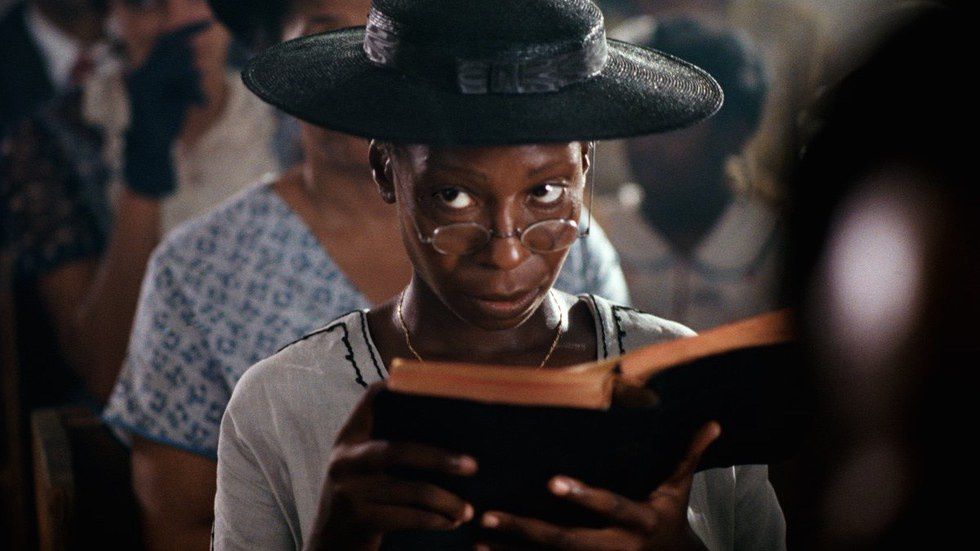★★★★☆ (8/10)
Long before Steven Spielberg somehow failed to make a profit worthy of his name with "The BFG," he stirred up quite the controversy with this Oscar-nominated period drama. "The Color Purple" was the filmmaker's first non-sci-fi/action blockbuster that officially cemented his reputation as one of the best in the business. Due to its sensitive subject matter, and its equally precious source material, the film also had plenty of detractors who argued that Spielberg, a white Jewish man, was unfit to direct a film about a poor black woman living in pre-depression era Georgia. Others found it to be far too sentimental for its own good. It's hard to watch "The Color Purple" without giving a thought to such criticisms, but it is simply too great to be defined by its controversy. Yes, it is a bit sappy by today's standards, but I'll be damned if the film doesn't earn every single tear Spielberg practically forces out of his audience.
Based on the Pulitzer Prize-winning novel by Alice Walker, the film details the trials, tribulations and ultimate triumph of Celie Harris (Whoopi Goldberg, in her feature debut). Already a victim of paternal abuse and incest, Celie is hurriedly married off to a rich farmer and widower, Albert Johnson (Danny Glover), at the age of 14. Ripped away from her sister Nettie, the only person who ever truly loved her, Celie continues to suffer physical and emotional abuse at the hands of her new husband, whom she knows only as "Mister." As the years go by, Celie finds strength and kindness in two strong women: jazz singer Shug Avery (Margaret Avery), an old flame of Albert's, and the feisty Sofia (Oprah Winfrey).
I can't help but imagine how different a contemporary adaptation of Walker's book would be from Spielberg's vision, given our country's current socio-political issues and ideologies. If anything, a remake would most likely lack the optimism and hope with which Spielberg blankets his version. Although he does not shy away from the horrors of Celie's life, Spielberg catches some strikingly poignant moments out of every scene, finding even the smallest trace of beauty in an otherwise difficult endeavor suffered by our protagonist. As his first foray into a fully dramatic territory, Spielberg uses this opportunity to create remarkable visual poetry, something his previous blockbuster efforts were short on (but didn't necessarily need either).
Much of "The Color Purple" is driven by action, but not the kind you would find in his more popular titles of course. Spielberg lets us observe and study his subjects; how they look at others, how they react to others, and how subtly their expressions change due to acts of kindness or acts of ignorant aggression. These are some of the film's most staggering moments, thanks to the sure-handed performances of Spielberg's wonderful ensemble. Winfrey is an explosive force of nature, strutting her way through streets and cornfields with a confidence unmatched by other actors of her caliber. Glover may not be looked upon favorably because of his despicable character, but his performance as an emotional powerhouse is undeniable. The entire film, however, belongs to Goldberg, in what is probably still her most dynamic role to date. After all, who could forget that smile?
At two-and-a-half hours, "The Color Purple" is anything but a drag, nor is it self-indulgent in its attempt to make us laugh, wince and cry at Celie's incredible story. It may not seem like it, but Spielberg is perfectly comfortable with the material, telling another story about a character who must overcome a tremendous threat. In this sense, Celie is not all that different from Indiana Jones or Martin Brody from "Jaws," but Spielberg does set her apart from these heroic figures by making her a far more introspective character, one who must first overcome inner obstacles before facing those outside herself. Sentimental it may be, but Spielberg achieves something deeply human that allows us to forgive the film for its sappy overtones.






















